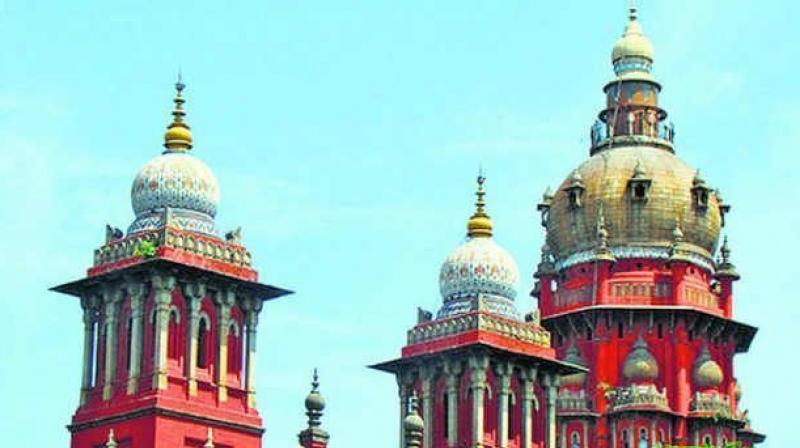Madras High Court: If author deletes provocative portions, TN must lift ban on books

Chennai: Directing the author of the Tamil books Meendezhum Pandiyar Varalaru and Venthar Kulathin Iruppidam Ethu? to delete the provocative contents calling for a fight for separate land and against other linguistic people, and castes, the Madras High Court has said on such compliance by the author, the state government must pass orders lifting the ban on the two books. The Full Bench comprising Justices M.M. Sundresh, Pushpa Sathyanarayana and R. Mahadevan gave the directive while disposing of the petitions filed by K. Senthil Mallar, the author of the two books.
Writing the judgment for the Bench, Justice R. Mahadevan said during the course of the hearing, after perusal of the objectionable area and the typed set of papers, it was pointed out to the petitioner that several portions of both the books are abusive against other castes and in the nature of spreading hatred and disharmony, thereby posing a threat to public order and security of the state. Thereafter, the petitioner has filed two separate memorandums, accepting to make certain alterations in the books. In reply, the state has raised objections to some alterations in certain portions, stating that the new alterations would not dissolve the objections.
“As most of the alterations have been accepted by the state, there cannot be any justification for the forfeiture to continue. Under such circumstances, the impugned orders are liable to be set aside, provided that the petitioner complies with the references and bibliography as pointed out by the state government, in addition, to delete the provoking contents calling for a fight for separate land and against other linguistic people and castes. The petitioner must comply with the above directions by submitting a representation reflecting the corrections with a copy of the corrected book and on such production, the state government must pass orders lifting the forfeiture within 2 weeks”, the bench added.
The bench said the petitioner has vouched for a cry to declassify Pallars from the scheduled caste claiming their superiority over others. There was nothing wrong with that, but for the language employed by the petitioner, who in the process of reflecting historical references to their superiority, has much ventured against the image of other communities in the scheduled caste itself and in the backward classes. “It is not a social issue, which the petitioner has raised by way of a novel, but what was penned is only a personal agony on the tantrum of his fallen kingdom. According to the petitioner what was penned by him in both the books, are historical facts, which by itself cannot give any right to him to demean the other communities and women”, the bench added.
The bench said as rightly contended by the advocate general, the benefits of being a caste under the Schedule were enjoyed by the members of the petitioner’s community. The petitioner cannot call himself as the voice of his community. Moreover, the notification or de-notification of a caste of the schedule or another category was within the domain of the Ministry of Social Justice and Empowerment. The decisions were still taken on the basis of social and economic factors, by the National Commission for scheduled castes and the National Commission for backward classes. It was always open to the petitioner to approach the appropriate Ministry, the bench added.

